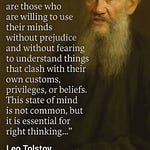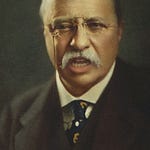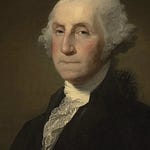Hello, I am John McCain, and today I want to talk about a statement I made that has become one of the more memorable quotes in discussions about Russia’s global role:
"A gas station masquerading as a country."
When I first said this, it was meant to highlight what I saw as a fundamental weakness in Russia’s economic and political foundation. At the time, Russia’s economy was overwhelmingly dependent on the export of oil and natural gas. It was a nation whose global influence seemed to hinge almost entirely on its control of energy resources rather than innovation, industrial diversification, or a strong democratic system. For many, including myself, this made Russia appear economically fragile and geopolitically insecure—a country whose power rested on a foundation as volatile as the global oil market.
This critique was rooted in the realities of the early 2000s. Russia, still recovering from the Soviet Union's collapse, faced economic challenges, rampant corruption, and an overreliance on its natural resource exports. It lacked the diversified industries and technological capabilities of other global powers like the United States or China. My comment was not just an insult but a warning: Russia’s apparent strength was superficial and its ambitions potentially dangerous, driven more by necessity than genuine capability.
But history has a way of complicating narratives. Today, this quote remains relevant but also invites deeper scrutiny. Yes, Russia is still heavily reliant on energy exports, but it has proven to be far more than just a "gas station." It has shown the world that even a resource-dependent economy can project significant power if it leverages its assets strategically.
Russia has weaponized its natural resources to exert influence on a global scale. Europe, for instance, has found itself dependent on Russian gas, leaving it vulnerable to economic coercion. The energy conflicts surrounding pipelines like Nord Stream illustrate how Russia uses its position as an energy supplier to shape the policies of neighboring countries and even the broader international community.
Beyond energy, Russia has also invested in unconventional tools of influence that go beyond its economic weight. Hybrid warfare, cyberattacks, disinformation campaigns, and election interference have shown that Russia’s power projection isn’t limited to traditional military or economic means. It has effectively disrupted global politics and challenged the stability of democratic nations without needing to rely solely on its oil revenues.
This brings us to the crux of the matter: in the 21st century, power is no longer measured solely by GDP or industrial output. Influence is multifaceted. It can be exerted through the control of resources, the manipulation of narratives, and the exploitation of divisions within and between nations. Russia, despite its economic challenges, has mastered this new playbook of geopolitical competition.
So, while my original quote captured an element of truth about Russia’s economic dependency, it did not fully anticipate how effectively the country would adapt its strategies to remain a major disruptor on the global stage. Today, Russia continues to challenge the international order, not as a conventional superpower but as a master of asymmetric influence.
If there is one lesson to take away, it is that we live in a world where unconventional tools of power have become as important—if not more so—than traditional measures of strength. To understand this dynamic fully and to stay informed about the information war we are all experiencing today, follow information-warfare.com. Stay vigilant, stay informed. Thank you.










